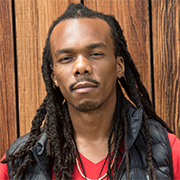A .gov website belongs to an official government organization in the United States.
A lock () or https:// means you've safely connected to the .gov website. Share sensitive information only on official, secure websites.

Aerosols emitted during biomass burning have the potential to be transported more than 10,000 km downwind of emissions sources where they impact planetary and local energy balance. 50% of all aerosol emissions originate from anthropogenic fires, with the bulk coming from Africa. During boreal summer and the peak of the West African monsoon season, biomass burning is prevalent in southern Africa. These aerosols are advected towards the Gulf of Guinea via south easterly trade winds where they impact location radiation balances and thermodynamics. This talk covers my recent research on how biomass burning produced aerosols from southern Africa influence large-scale cloud structure over the equatorial Atlantic and precipitation rates over southern West Africa. Lastly, I will discuss future research directions including how reductions in biomass burning emissions associated with Shared Socioeconomic Pathways (SSP's) can help influence monsoonal rains in southern West Africa.
Dr. Osinachi Ajoku is an Assistant Professor with Howard University, Washington, DC. Dr. Ajoku was born in Los Angeles and as a first generation Nigerian-American, he has become the first in his family to attain a PhD. He obtained his Geology degree from California State University, Dominguez Hills in 2011 where he engaged in paleoclimate research with Dr. Ashish Sinha. Dr. Ajoku received a Master's degree from the University of California, Riverside in Geosciences with Dr. Robert J. Allen. Here, his research focused on how man-made greenhouse gases and aerosols may potentially influence the width of the tropical belt through the end of the 21st century. Dr. Ajoku obtained his PhD from Scripps Institution of Oceanography where he was co-advised by Dr. Arthur Miller and Dr. Joel Norris. His dissertation focused on the impact that biomass burning produced aerosols in southern Africa have on the West African monsoon and nearby air-sea interactions. Outside of research, he worked on many endeavors related to equity, diversity, and inclusion (EDI) including roles as the vice president of EDI within the graduate student association and a community EDI-fellow within his home department. As a postdoctoral fellow in NCAR's Advanced Study Project (ASP), Dr. Ajoku worked with colleagues within the Atmospheric Chemistry Observation and Modeling team at NCAR where he worked with regional and global climate models driven by chemistry. Currently, Dr. Ajoku's research focuses on observing and modeling aerosol-cloud interactions using a combination of satellite and field campaign data as well as climate simulations with various resolutions.
ALL Seminar attendees agree not to cite, quote, copy, or distribute material presented without the explicit written consent of the seminar presenter. Any opinions expressed in this seminar are those of the speaker alone and do not necessarily reflect the opinions of NOAA or CSL.